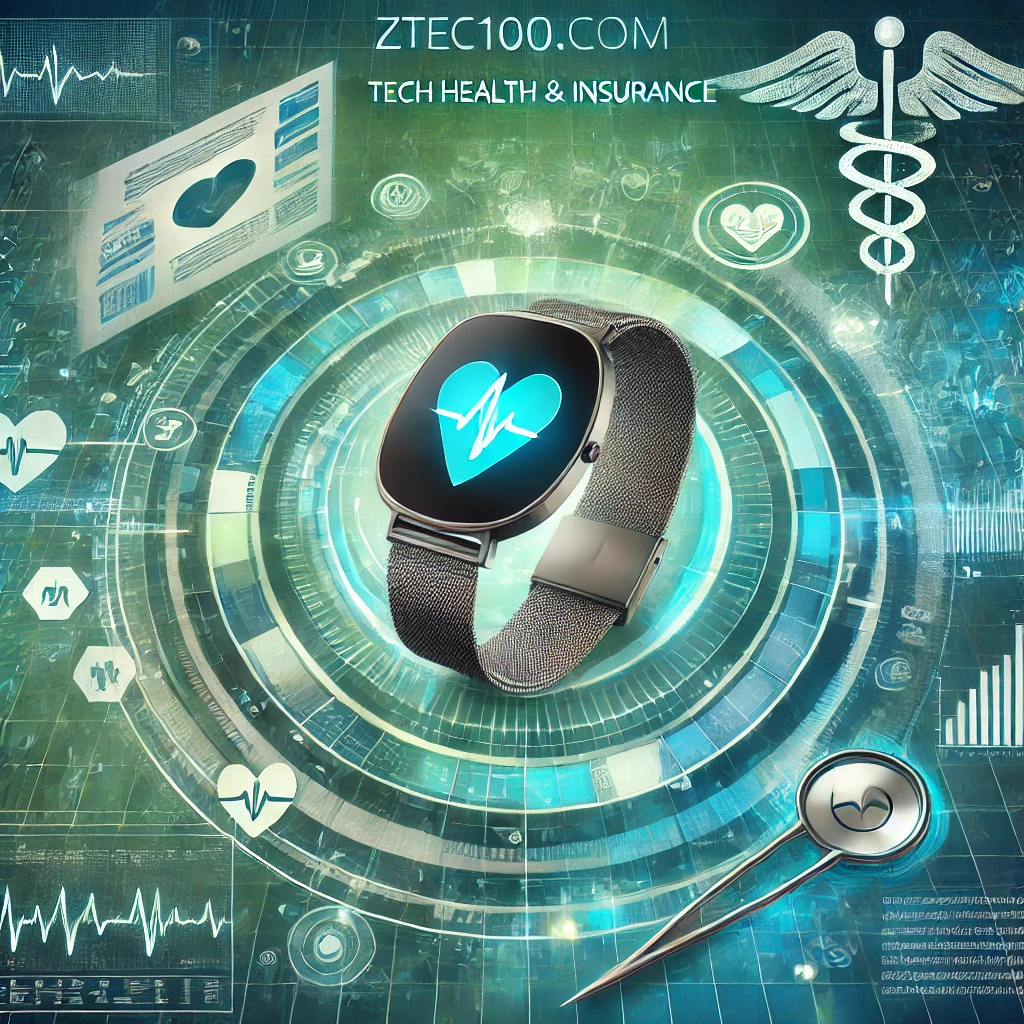Introduction
Technology has revolutionized many sectors, and health and insurance are no exceptions. The blend of tech with these critical areas is paving the way for innovative solutions that enhance efficiency, accuracy, and user experience. Enter ztec100.com, a platform dedicated to exploring the nexus of technology, health, and insurance, providing insights, reviews, and the latest news.
The Role of Technology in Health
Advancements in Medical Technology
In recent years, medical technology has advanced by leaps and bounds. From robotic surgeries to advanced imaging techniques, tech innovations are saving lives and improving patient outcomes. For instance, minimally invasive surgeries using robotic systems reduce recovery time and minimize complications.
Telemedicine and Remote Healthcare
Telemedicine has surged in popularity, especially in the wake of the COVID-19 pandemic. This technology allows patients to consult healthcare providers from the comfort of their homes, breaking down geographical barriers and making healthcare more accessible.
Wearable Health Tech
Popular Wearable Devices
Wearable technology, such as fitness trackers and smartwatches, has become an integral part of modern health management. Devices from brands like Fitbit, Apple, and Garmin help monitor vital signs, track physical activity, and even detect irregularities that might warrant medical attention.
Benefits of Wearable Health Tech
These devices empower individuals to take control of their health by providing real-time data and insights. They encourage a proactive approach to health management, enabling early detection of potential issues and promoting healthier lifestyles.
Health Apps and Mobile Solutions
Top Health Apps
Health apps like MyFitnessPal, Headspace, and Calm offer a range of services from tracking nutrition and exercise to providing guided meditation sessions. These apps make health management more convenient and personalized.
How Mobile Solutions Improve Health
Mobile health solutions improve accessibility to health information and services. They allow users to monitor their health, access medical records, and receive personalized advice, making healthcare more interactive and engaging.
Electronic Health Records (EHR)
Importance of EHR
Electronic Health Records (EHR) streamline the management of patient data, making it easier for healthcare providers to access and share information. This improves coordination and ensures that patients receive comprehensive care.
Security and Privacy Concerns
While EHR systems enhance efficiency, they also raise security and privacy concerns. Protecting sensitive patient information from cyber threats is paramount, requiring robust encryption and stringent access controls.
AI and Machine Learning in Healthcare
AI Applications in Diagnosis and Treatment
Artificial Intelligence (AI) and Machine Learning (ML) are transforming healthcare by enhancing diagnostic accuracy and treatment efficacy. AI algorithms analyze vast amounts of data to identify patterns and predict outcomes, aiding in early disease detection and personalized treatment plans.
Predictive Analytics in Health
Predictive analytics uses historical data to forecast future health trends. This can help in predicting disease outbreaks, managing hospital resources, and developing preventive strategies.
The Intersection of Tech and Insurance
Digital Transformation in Insurance
The insurance industry is undergoing a digital transformation, leveraging technology to improve customer experience, streamline processes, and reduce costs. Online platforms and mobile apps enable easy policy management and claims processing.
Insurtech: Revolutionizing the Insurance Industry
Insurtech refers to the use of technology to disrupt and improve the insurance industry. Startups in this space are introducing innovative products and services, such as usage-based insurance and automated claims processing, making insurance more accessible and customer-friendly.
Telematics and Insurance
What is Telematics?
Telematics involves the use of GPS and other data-tracking technologies to monitor and analyze vehicle usage. This data can be used to offer personalized insurance premiums based on driving behavior.
How Telematics Benefits Policyholders
Telematics benefits policyholders by promoting safer driving and potentially reducing insurance costs. Drivers who exhibit safe driving habits may receive discounts and other incentives from their insurers.
Blockchain in Health and Insurance
Blockchain for Secure Data Management
Blockchain technology offers a secure and transparent way to manage health and insurance data. Its decentralized nature ensures that data is tamper-proof and easily traceable.
Smart Contracts in Insurance
Smart contracts automate insurance processes, reducing the need for intermediaries and speeding up claims processing. These self-executing contracts are based on blockchain technology and trigger actions when predefined conditions are met.
Cybersecurity in Health and Insurance
Importance of Cybersecurity
As health and insurance industries digitize, cybersecurity becomes increasingly important. Protecting sensitive data from cyber threats is crucial to maintaining trust and compliance with regulations.
Best Practices for Protecting Data
Implementing strong cybersecurity measures, such as encryption, multi-factor authentication, and regular security audits, is essential for protecting sensitive health and insurance data.
Customer Experience in the Digital Age
Enhancing Customer Experience with Technology
Technology enhances customer experience by providing personalized, convenient, and efficient services. From chatbots to mobile apps, tech solutions streamline interactions and improve satisfaction.
Personalization in Health and Insurance
Personalization is key to modern customer experience. Leveraging data analytics, companies can offer tailored health and insurance solutions that meet individual needs and preferences.
Regulatory Challenges and Compliance
Key Regulations in Health and Insurance Tech
Compliance with regulations such as GDPR, HIPAA, and other data protection laws is essential for companies operating in the health and insurance sectors. These regulations ensure that customer data is handled responsibly and ethically.
Navigating Compliance Challenges
Navigating the complex landscape of regulatory compliance requires a deep understanding of the laws and the implementation of robust compliance programs. This includes regular training, audits, and updates to policies and procedures.
Future Trends in Tech Health and Insurance
Emerging Technologies
Emerging technologies such as virtual reality (VR), augmented reality (AR), and the Internet of Things (IoT) are poised to revolutionize health and insurance. These technologies offer new ways to engage with customers and improve service delivery.
Predictions for the Next Decade
Over the next decade, we can expect to see further integration of AI, blockchain, and other advanced technologies in health and insurance. These innovations will continue to enhance efficiency, personalization, and security.
Case Studies
Successful Tech Implementations in Healthcare
Case studies of successful tech implementations in healthcare highlight the benefits of adopting new technologies. For example, hospitals that have integrated AI into their diagnostic processes have seen significant improvements in accuracy and efficiency.
Innovations in Insurance
Innovative insurance companies are leveraging technology to offer new products and services. Examples include peer-to-peer insurance models and the use of AI to streamline claims processing.
Conclusion
Technology is transforming the health and insurance industries, making them more efficient, accessible, and customer-friendly. As we look to the future, the continued integration of advanced technologies promises to further enhance these sectors, benefiting both providers and consumers.
FAQs
What is ztec100.com?
ztec100.com is a platform dedicated to exploring the intersection of technology, health, and insurance, offering insights, reviews, and the latest news.
How is technology transforming healthcare?
Technology is transforming healthcare by improving diagnostic accuracy, enhancing patient care, and making health services more accessible through innovations like telemedicine and wearable devices.
What are the benefits of wearable health tech?
Wearable health tech empowers individuals to monitor their health in real-time, promoting proactive health management and early detection of potential health issues.
How does AI improve healthcare?
AI improves healthcare by analyzing large datasets to identify patterns, aiding in early disease detection, and developing personalized treatment plans, ultimately enhancing diagnostic accuracy and treatment efficacy.
What are the challenges in implementing tech in insurance?
Challenges in implementing tech in insurance include regulatory compliance, cybersecurity concerns, and the need for significant investment in technology infrastructure and training.













